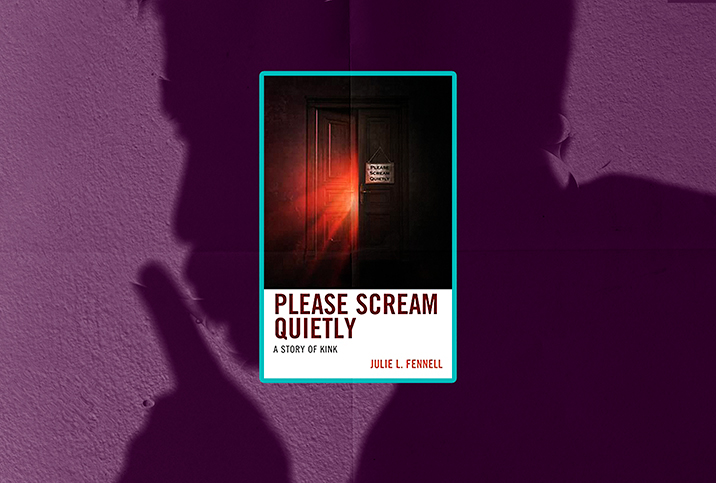Why Do Some People Think Serial Killers Are Hot?

Serial killers are a common object of fascination, the magnitude of their crimes inviting us to wonder how a person could possibly commit such heinous acts. But nearly as perplexing as the killers themselves are those who—far from being repulsed by their violent crimes—profess their romantic or sexual attraction to these notorious murderers.
The phenomenon has been well-documented over the years. High-profile killers like Richard Ramirez, Ted Bundy and Jeffrey Dahmer each received fan mail in prison and many of the letters were of a romantic or sexual nature. The trend continues today, with mass shooters such as Anders Breivik and Nikolas Cruz reportedly receiving deluges of love letters after their incarceration.
It's not uncommon for notorious serial killers to marry their pen pals, either. Ramirez married a woman he met via letters in 1996, as did Lyle and Erik Menendez in 1993 and 1996, respectively. Bundy famously married an admirer on the courtroom floor of his own murder trial. Dahmer's admirers were even featured in the new hit Netflix show "Monster: The Jeffrey Dahmer Story," in which they sent him money.
Author Sheila Isenberg noted in her book, "Women Who Love Men Who Kill," people who feel romantic attraction to murderers challenge the deepest roots of our social sensibilities. They profess love for individuals who most people feel deserve nothing but utmost contempt.
What is it that causes these admirers to fall for some of the most notorious criminals in history? And do they love them in spite of their repulsive crimes or because of them?
The 'Bonnie and Clyde Syndrome'
Why people might feel an attraction to violent offenders hasn't been the subject of much empirical research, according to Elizabeth Jeglic, Ph.D., professor of psychology at John Jay College of Criminal Justice in New York City, but there are a few hypotheses that might explain the phenomenon.
One possible explanation is a condition called hybristophilia, sometimes called the "Bonnie and Clyde syndrome" after notorious 1930s criminals Bonnie Parker and Clyde Barrow. Hybristophilia occurs when a person is aroused by the idea of someone committing a crime. It is considered a paraphilia, or a condition of persistent and intense sexual arousal to an atypical stimulus.
John Money, the psychologist who first named the condition, noted that hybristophiles may form a relationship with convicted criminals once they are incarcerated. Indeed, incarceration might be the appeal for a hybristophile. In some cases, they may even coerce the object of their affection into committing a crime in order to land them in prison.
Though the condition is relatively unstudied, hybristophilia is known to be quite rare, and it seems unlikely to be the cause behind every adoring prison pen pal. For her book, Isenberg interviewed more than three dozen women who were in relationships with prisoners serving life or death-row sentences, and not one of the women expressed arousal at the thought of violence.
"Rather, they insisted that the man with whom they were in love was not guilty at all, that he was not a violent person," she wrote.
Bad boys, fame and manipulation
Attraction to serial killers or murders is a "gendered phenomenon," noted Melissa Hamilton, Ph.D., professor of law and criminal justice at the University of Surrey in the United Kingdom.
"It's almost always the male serial offender and female attraction," Hamilton said. "You almost never see, for example, a female serial killer where they attract male [admirers]."
Serial killers might be seen as an extreme example of "bad boy" appeal, Hamilton explained, their allure playing off the nurturing role women are socially encouraged to fill. Admirers may feel that they can access a more sensitive side of a notorious criminal—possibly even changing them for the better.
"A lot of it is a fantasy of, 'Well, he may have been evil to others, but he won't be evil to me because he sees me as different,'" she added. "Or 'I might be able to change him and show him love that maybe his mother didn't and, therefore, I'll make them a better person.'"
In other cases, the notoriety of high-profile violent criminals may be what draws in fawning fans. They may feel a bit of star power by proxy when they have a personal relationship with a household name, however grim the reason behind their celebrity, Jeglic said.
"Part of that is just feeling special because that person is special, though, obviously not in a positive way," she explained.
Notorious criminals, for all their infamy, have little else to do in prison, Isenberg wrote in her book, and thus, they are more likely than other big-name "celebrities" to write back to whom they attract.
"It's easier to gain immortality by becoming involved with Richard Ramirez the Night Stalker than Johnny Depp or Brad Pitt," she wrote. "The Night Stalker will answer his fan mail."
It's also important to remember that these notorious killers can be highly manipulative, Hamilton said. Even in letters, they may exercise that ability over the people who write to them, earning their sympathy and perhaps, eventually, their love.
"They manipulate them into thinking, 'Yes, I really am a good guy, I didn't do this,' 'I'm misunderstood' or 'I had a bad childhood,'" she said.
Trauma is shared
A common thread among many of the individuals who fall for notorious murderers appears to be a history of trauma, Jeglic said.
Isenberg's case studies bolster this theory. She noted that each woman she interviewed reported some history of abuse: psychological, physical or emotional, or all three.
For women with a history of trauma, dating a convicted criminal may paradoxically be seen as a "safe" relationship. With the killer behind bars for life, the threat of physical abuse is close to zero. As Isenberg wrote, women who fall for incarcerated men may seek "safety in a relationship with a man behind bars who can't hurt her but can only love her."
The fact that the relationship may never be consummated might even be part of the appeal for traumatized individuals, Hamilton noted.
For women with a history of trauma, dating a convicted criminal may paradoxically be seen as a 'safe' relationship.
"For a lot of the women, the fact that they can't have sex may be attractive, because that other person is in prison; particularly for women who've been sexually assaulted before, maybe part of the allure is 'I can then love this person that I can't be sexually abused by,'" she said.
Part of the reason romantic interest seems to skew feminine is simple statistics, Jeglic said. The vast majority of violent offenders are men, so the majority of their admirers end up being heterosexual women.
But trauma may also play a role. If traumatized individuals are more likely to fall for violent offenders, then it makes sense that women—the majority of victims of sexual abuse—would be first and foremost among that group.
Whatever the cause, serial killer romance is hardly a love story for the ages, Hamilton said. Whether the affection is mutual or the violent offender is simply manipulating their admirers to their own ends is difficult to say, but she is highly skeptical of such relationships.
She explained, "To be a serial killer, there's got to be something that's not really normal operating in your brain or your personality, per se."




















